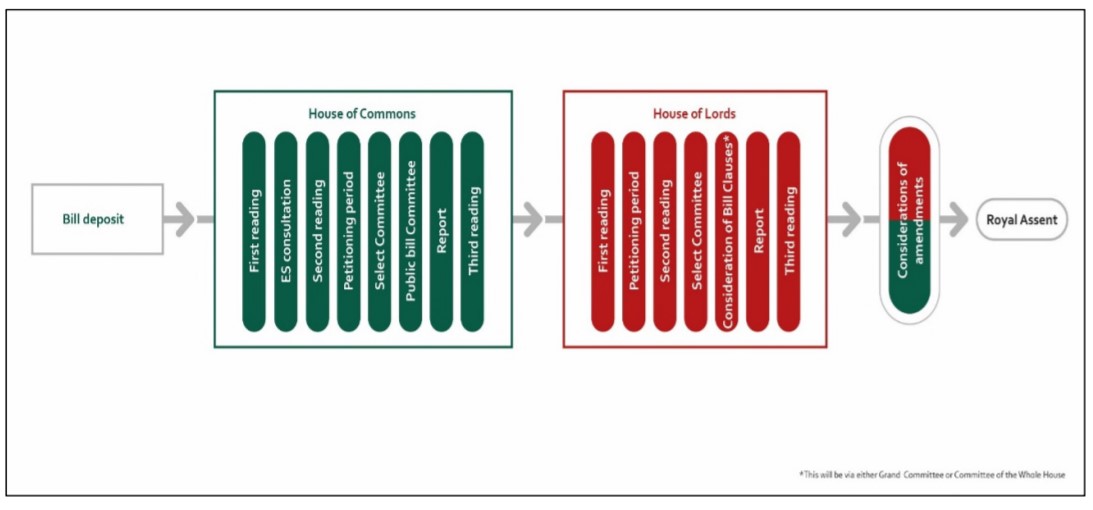The launch of the High-Speed 2 (HS2) Phase 2b western leg Bill has set the stage for a significant and in-depth discussion on alternative proposals for an underground station at Manchester Piccadilly. This development has garnered support from a consultant who backs the idea of an underground station. The Integrated Rail Plan (IRP), released in November, had previously confirmed the government's preference for a surface "turnback" station in Manchester, located next to the existing Network Rail station. Weston Williamson & Partners, an architectural firm, and Expedition Engineering, an engineering consultancy, put forth a proposal in June 2020 to merge the HS2 and Northern Powerhouse Rail (NPR) stations at Manchester Piccadilly into a single integrated underground station.
Rob Naybour, the founding partner at Weston Williamson & Partners, believes that the recent deposit of the Bill marks the beginning of an important consultation process. He considers the previous consultations to have been preliminary and expects the current discussions to be more intense. Naybour strongly advocates for the underground station, viewing the Bill process as an opportunity for it to receive thorough consideration. Drawing parallels with the inclusion of tunnels through the Chilterns in Phase 1 of HS2, which aimed to expedite the bill's passage and address negative feedback, Naybour raises concerns about the reaction if the proposed dead-end terminus station receives negative feedback.

The Bill process involves several stages, including readings, consultations, and reports in both the House of Commons and the House of Lords. Weston Williamson & Partners and Expedition Engineering argue that constructing surface terminus stations for HS2 and NPR, as currently planned, would result in ongoing connectivity issues for rail travel within Manchester, leading to slower journeys and reduced capacity on the new station platforms. The IRP cites timescale and costs as key factors favouring a surface station, but Naybour remains unconvinced about both aspects. The government estimates that an underground station would cost at least £4 billion to £5 billion more than a surface station, have a weaker value for money, and pose a higher risk of escalating construction costs. Naybour asserts that he has not seen any supporting data justifying these figures.
The government suggests that the preparations, consents, and construction required for an underground station would result in a minimum delay of seven years for the benefits of the western leg opening. Naybour, on the other hand, believes that HS2 trains could be brought into the station quickly by utilising the spare viaduct to the north of Piccadilly during the interim period while the underground station is being built. He argues that the box and deeper station represent the optimal long-term solution for Manchester, enabling tunnel connections to an NPR route. Naybour emphasises that cities like Madrid, Vienna, and Berlin are moving away from terminus stations and instead opting for through stations, while the UK seems to be heading in the opposite direction. He contends that proper integration of major projects, including NPR and a new east-west line across the Pennines, would directly link into HS2, facilitating seamless train travel across the country.
A spokesperson from the Department for Transport (DfT) affirms that they have worked closely with Greater Manchester partners throughout the project to achieve the best possible solution for the region. The DfT's analysis concludes that an underground station would cause significant disruption during construction, require passengers to spend more time reaching the platforms, nullify the benefits of faster journeys, and incur an additional cost of up to £5 billion, while substantially delaying the full implementation of HS2 and Northern Powerhouse Rail services. The spokesperson maintains that a surface station offers the best value for money and aligns with Greater Manchester's aspirations to capitalize on the advantages that HS2 will bring to the region.
Manchester City Council has also joined the chorus, urging the government to reconsider the "compelling case" for an underground station in the city. They argue that the proposed surface station would squander substantial potential benefits. The station upgrade is deemed essential due to the current stations' inadequate capacity to accommodate the planned improvements, which include high-speed services to Birmingham and London, expected to operate with 400-meter trains, as well as future NPR services. According to the IRP, the proposed surface station would enable the HS2 line into Manchester to serve the airport. An expanded surface station with six platforms, instead of four, could support future NPR services alongside HS2. HS2 Ltd estimates that the station could handle up to 14 trains per hour from a combination of HS2 and NPR services, representing the maximum practical capacity of the HS2 line into Manchester.
